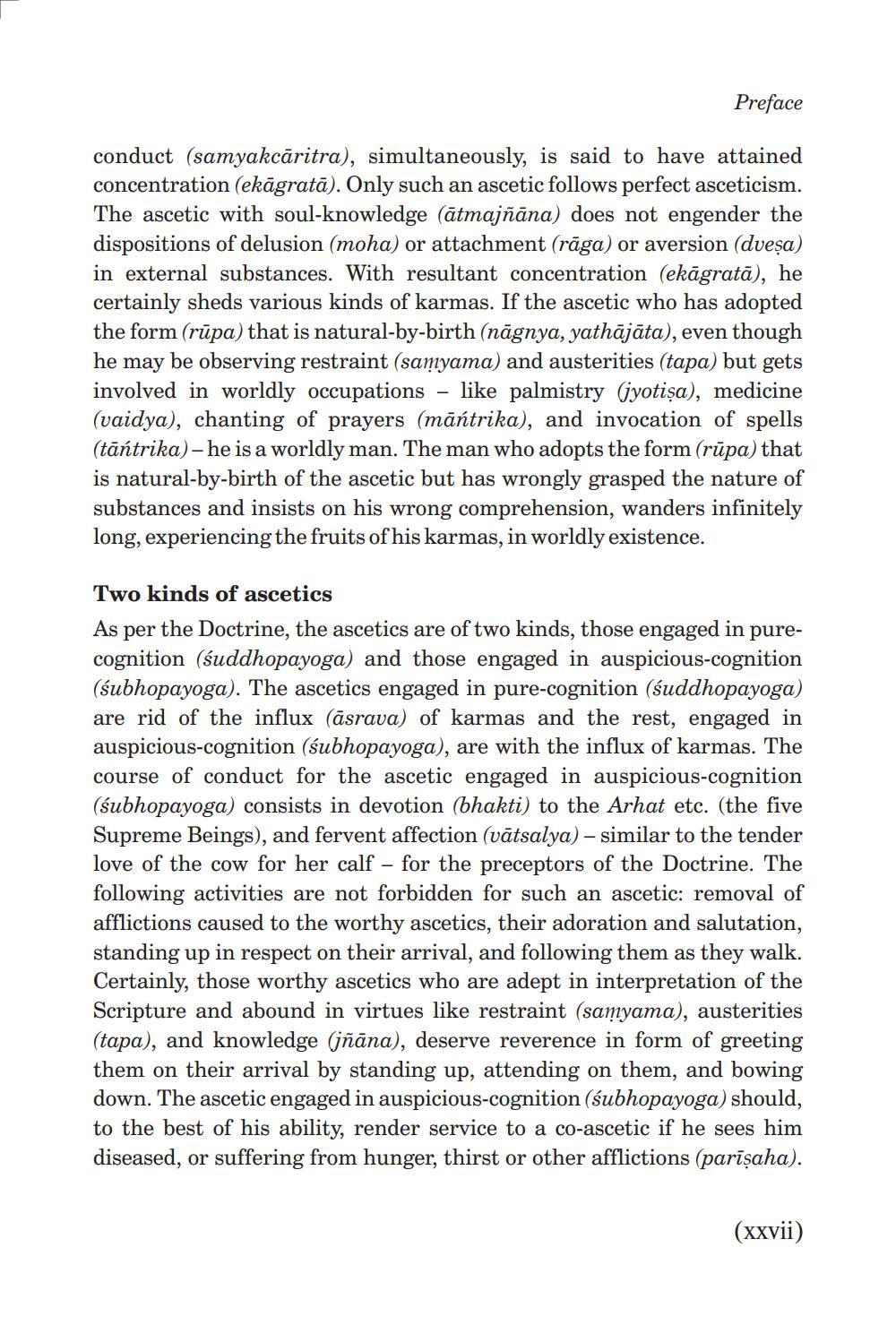________________
Preface
conduct (samyakcāritra), simultaneously, is said to have attained concentration (ekāgratā). Only such an ascetic follows perfect asceticism. The ascetic with soul-knowledge (ātmajñāna) does not engender the dispositions of delusion (moha) or attachment (rāga) or aversion (dveṣa) in external substances. With resultant concentration (ekāgratā), he certainly sheds various kinds of karmas. If the ascetic who has adopted the form (rupa) that is natural-by-birth (nagnya, yathājāta), even though he may be observing restraint (samyama) and austerities (tapa) but gets involved in worldly occupations like palmistry (jyotiṣa), medicine (vaidya), chanting of prayers (mantrika), and invocation of spells (tantrika) - he is a worldly man. The man who adopts the form (rūpa) that is natural-by-birth of the ascetic but has wrongly grasped the nature of substances and insists on his wrong comprehension, wanders infinitely long, experiencing the fruits of his karmas, in worldly existence.
-
Two kinds of ascetics
As per the Doctrine, the ascetics are of two kinds, those engaged in purecognition (suddhopayoga) and those engaged in auspicious-cognition (subhopayoga). The ascetics engaged in pure-cognition (suddhopayoga) are rid of the influx (āsrava) of karmas and the rest, engaged in auspicious-cognition (subhopayoga), are with the influx of karmas. The course of conduct for the ascetic engaged in auspicious-cognition (subhopayoga) consists in devotion (bhakti) to the Arhat etc. (the five Supreme Beings), and fervent affection (vātsalya) - similar to the tender love of the cow for her calf - for the preceptors of the Doctrine. The following activities are not forbidden for such an ascetic: removal of afflictions caused to the worthy ascetics, their adoration and salutation, standing up in respect on their arrival, and following them as they walk. Certainly, those worthy ascetics who are adept in interpretation of the Scripture and abound in virtues like restraint (samyama), austerities (tapa), and knowledge (jñāna), deserve reverence in form of greeting them on their arrival by standing up, attending on them, and bowing down. The ascetic engaged in auspicious-cognition (subhopayoga) should, to the best of his ability, render service to a co-ascetic if he sees him diseased, or suffering from hunger, thirst or other afflictions (pariṣaha).
(xxvii)




